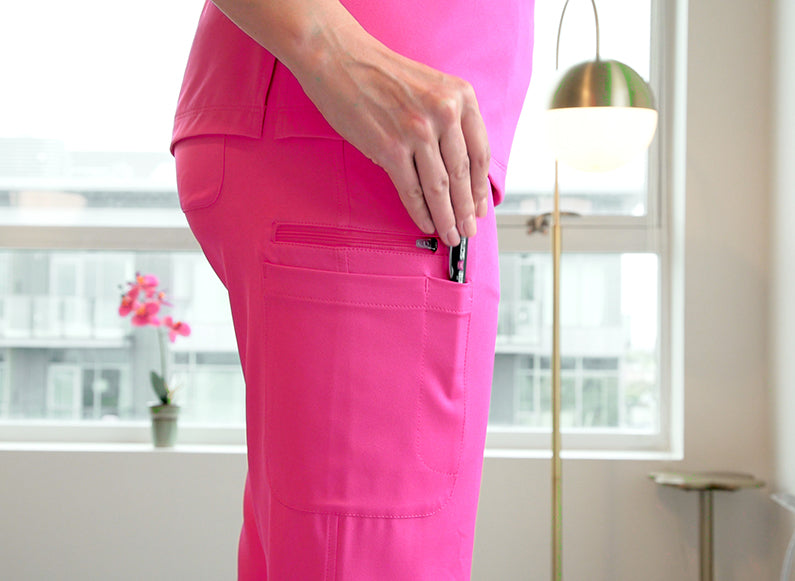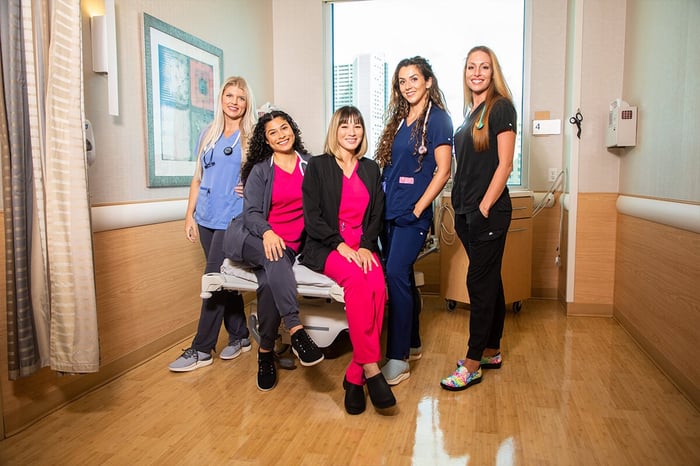Written by Joanne Potter BSN, RN
Get to work early? Is that even a thing? It is for me and has been for more than 15 years. And no, I don’t do it to suck up to the manager (she didn’t even know my name for the first six months she was there, ha!). I do it for myself because it helps relieve my stress and anxiety, which I’m sure many other nurses have as well.
Why It’s Beneficial to Get To Work Early
Shows Professionalism
Showing up early and ready to work demonstrates professionalism. This communicates your ability to be dependable and trustworthy. It also relays the message that you take your career seriously. If you’re a nurse, then you are a professional. To earn the respect you want and deserve, show respect to others by being there early to relieve the off-going nurse.
Reduces Stress
Nursing as a profession is already stressful. Even after working in the hospital for 15 years, I still get stressed at times when I’m anticipating my next shift. Getting to work early helps relieve some stress. It gives me a chance to get settled by having ample time to get prepared. I have a chance to put my lunch away, get coffee, fill my water bottle, and get my report sheets ready before tackling the upcoming 12-hour shift.
Starts Your Shift Off Right
We’ve all had crazy and stressful shifts as nurses. Sometimes it can’t be helped because it goes with the territory. But setting yourself up on a positive note from the start of the shift can’t hurt, right? The off-going nurse is always happy to see their relief, but even more so when they’re early or at least on time. Being late to start your shift never sets the stage for a good report.
Provides Time to Organize
If you get to work early, you’ll be ready to receive report as soon as you know your assignment. This gives you as much time as possible to organize and plan your shift plus a few extra minutes to get any questions answered. After a handoff report, you’ll have time to organize your report sheets, look through charts, and plan your shift. I know things don’t always go as planned, but we can always try to at least have those ducks in a row from the start.
How to Get To Work Early
This all sounds good on paper, but how do we actually put this into practice? We’d all like to show up on time and feel ready to tackle the shift. These are things that have worked for me throughout the years.
Set Out Your Scrubs the Night Before
Reduce morning decisions by laying out your favorite scrubs the night before. You can even set out all of your scrubs for the week at the same time to save yourself from having to do this each night. (May we suggest super soft Moxie Scrubs?)
Prepare Your Lunch the Night Before
Making lunch is a scramble when you're in a rush! This ensures you have a delicious lunch which keeps your blood sugar stable, elevates your mood, and will improve your resilience at work. Here is a full tutorial on Delicious Lunch Ideas for the Busy Nurse, complete with meal prep techniques!
Set Alarms
Setting your alarm to wake up is a given, and something most of us do every day we work. If you’re a person that tends to run late, set additional alarms while you’re getting ready. Setting alarms for more than simply waking up can keep you on track to leave for work on time. For instance:
-
0500: Wake up
-
0515: Shower
-
0600: Leave the house
That’s just a quick example. I don’t know how long you take to get ready and the length of your commute. Setting alarms helps keep me on schedule. It helps me to focus on the task of getting ready. Of course I want to sit and drink coffee for an hour to wake up, but my alarm goes off and knocks me back into reality.
Check Traffic
I check traffic before every shift. It’s a good habit to get into. It’s easy to do nowadays, since apps like Google Maps will tell you where accidents are, if there is heavy traffic, which roads are closed, or any other delays. I check traffic when I’m getting ready, so I’m prepared in case I need to leave earlier than usual.
Leave Earlier
Always leave earlier than you think you need to. Even after checking traffic, Google Maps can’t tell you everything, especially if it hasn’t happened yet (although that would be a great feature!). After checking the estimated commute time, add on at least another 5-10 minutes. If you’re worried about getting to work too early, take a book to read. I never regretted getting to work too early, as I always had a book to read.
Don’t Do Too Much Before Work
I know this is easier said than done, and it took me years to learn this. If you work 12-hour shifts, don’t do too much before those shifts. Keep it to the bare minimum. Don’t start five loads of laundry or cook dinner from scratch. Instead, meal prep on your days off to have easy meals and save the giant pile of laundry for your days off. I know this isn’t always possible, but again, try to keep what you have to do very minimal before your shifts.
This has served me well over the years. I can count on one hand the number of times I have clocked in late (along with half the unit stuck in traffic!) over all these years. Things happen. We’ll be late once in a while, but it should be a rare occurrence. Getting to work, not only on time, but early, sets you up for a shift. It also makes your coworkers happy, which makes for a healthy work environment. Most importantly, it relieves some of our own stress, which is a big win in my book.
About the Author
Joanne Potter BSN, RN is a writer that specializes in health and wellness. She has fifteen years of experience as a Registered Nurse in the NICU (Neonatal Intensive Care Unit). Her years working on the frontlines at the bedside enable her to write with a deep understanding of what patients want from their communities.




